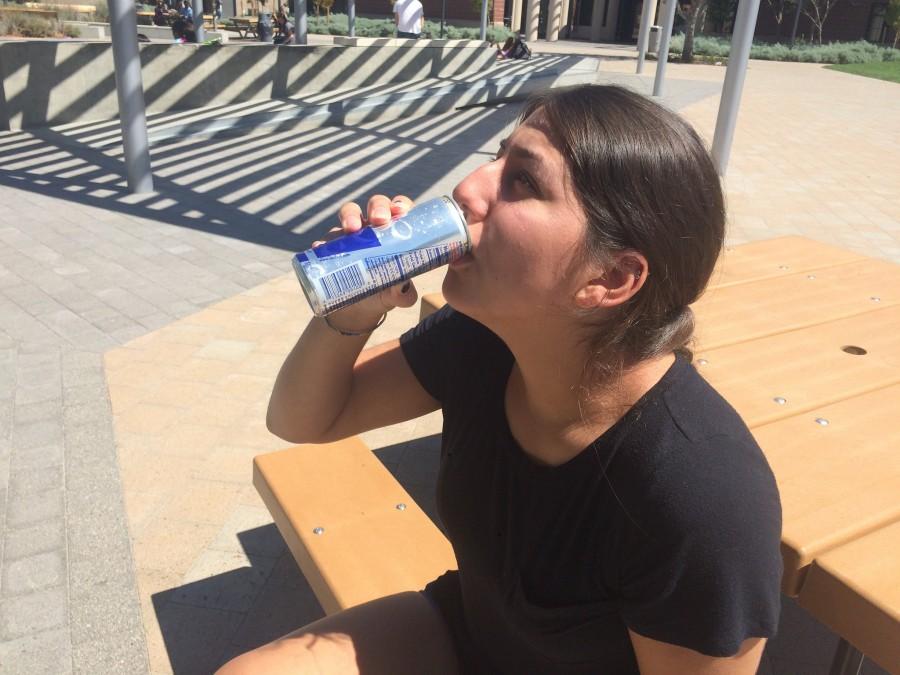DVC Book Center shouldn’t sell energy drinks
The Book Center provides energy drinks for students to purchase and take around campus.
September 15, 2015
The Diablo Valley College Book Center provides RedBull, Rockstar, and Monster for students to purchase. Some students receive their daily caffeine to get through their classes, or recover from a long night of homework. However, this isn’t the right way to handle and address lack of sleep.
Energy drinks have different effects that can cause headaches and severe fatigue from withdrawal. Also, the high amounts of sugar in these drinks heighten blood sugar and insulin levels, which can result in a “crash” feeling. We think these drinks are boosting our energy and waking us up, but the consequences of this are much worse than how we originally felt before drinking it. Should DVC really be allowing these to be sold in the Book Center when they have so many negative effects on people?
Business major Dakota Soun, 18 said, “I like them because they provide that extra boost whenever I’m really exhausted or don’t have the energy to get something done.”
The Book Center also has a Peet’s Coffee store inside, provided with many caffeinated drinks to choose from, such as coffee and tea. The levels of caffeine are much more concentrated than in energy drinks, because of the high amounts of artificial sweeteners, so people should be leaning towards that instead. They provide packets for tea and coffee to bring home as well. Realistically, we have so many different and much healthier ways to get caffeinated drinks. These options should be enough for students, and they would still have a wide variety to choose from without them.
Calen Oneill, 19, Psychology major comments, “They aren’t good for you and can cause unwanted side effects. Making them more available for students can cause the result of over consuming them, leading to more harmful consequences.”
Students should still be free to purchase energy drinks outside of campus, but DVC should not be providing and encouraging students to consume these drinks. It is understandable that people are in a hurry and just need a quick caffeine fix, however, buying these drinks can sometimes do more harm than good in the long run.
“Energy drinks contain a high concentration of caffeine, sugar and other untested ingredients, which gives students only a temporary ‘high’ followed by a big drop in energy levels once the effects wear off. Energy drinks are not FDA approved because they are sold as a dietary supplement, so many drinks have unproven claims, unregulated ingredients, and their safety is unknown,” said Kristen Colchico, Department of Health Sciences.







































































